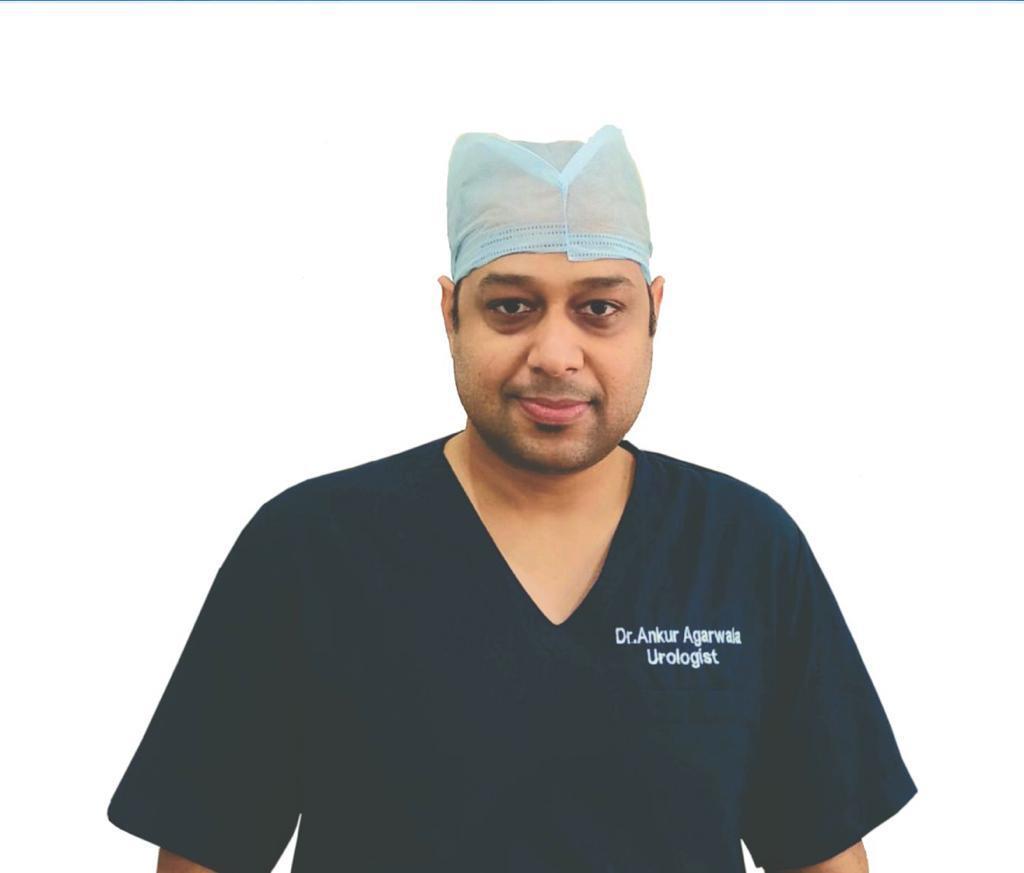Search Result: 10

Dr Amlan Jyoti Sarmah
MBBS,MS DNB,(Urology) IKDRC - Ahmedabad
Registration No
4651325
Language
English, অসমিয়া, বাংলা, हिंदी

12 years experience overall

Guwahati , Guwahati
MON, WED, FRI, SAT(09:00 AM-03:00 PM)

Dr Ankur Agarwala
MS,DNB (Urology), Renal Transplant (Medanta Medicity,Delhi NCR)
Registration No
2014145
Language
English, অসমিয়া, বাংলা, हिंदी

10 years experience overall

Guwahati , Guwahati
MON- SAT(10:00 AM-04:00 PM)

Dr Chandan Phukan
MBBS, MS (Surgery), Mch (Uro), FRCS (Uro)
Registration No
6077584
Language
English

10 years experience overall

Paschim Boragaon , Guwahati
MON- SAT, MON- SAT(09:00 AM-05:30 PM)

Dr Joy Narayan Chakraborty
MS,FRCS Edin,FACS,DNB(Surgery),DNB(Urology)
Registration No
1939319
Language
English

17 years experience overall

Paschim Boragaon , Guwahati
WED, WED(02:30 PM-05:00 PM)

Registration No
2677630
Language
English, বাংলা

25 years experience overall

Guwahati , Guwahati
MON- SAT(03:00 PM-05:00 PM)

Dr Sajidul Mazumdar
MBBS, M.S, Mch (Urology)
Registration No
4329108
Language
English, অসমিয়া, বাংলা, हिंदी

5 years experience overall

Paschim Boragaon , Guwahati
MON- SAT, MON- SAT(12:00 PM-05:00 PM)

Dr Syed Wasim Hasan
MBBS, MS, M.Ch.
Registration No
5159789
Language
English, हिंदी

9 years experience overall

Paschim Boragaon , Guwahati
MON, THU- SAT, MON, THU- SAT(11:00 AM-04:00 PM)

Dr Bikash Bawri
MS, MCH, FMAS
Registration No
4164602
Language
English, অসমিয়া, हिंदी

9 years experience overall

Zoo Road Guwahati , Guwahati
MON- SAT(10:00 AM-11:00 AM)

Dr Debango Sarma
MS, MCH (URO) AIIMS
Registration No
2039283
Language
English

10 years experience overall

Guwahati , Guwahati
SAT(03:00 PM-04:00 PM)

Dr Saumar Jyoti Barauh
MBBS, MS, MCh
Registration No
3979451
Language
English, অসমিয়া, বাংলা, हिंदी

35 years experience overall

Guwahati , Guwahati
MON- THU(10:30 AM-11:30 AM)
Frequently Asked Questions for s in
Recurrent UTIs can be caused by incomplete treatment of previous infections, structural abnormalities in the urinary tract, hormonal changes (especially during menopause), sexual activity, poor hygiene, and certain medical conditions like diabetes or kidney stones. Discussing your recurrent UTIs with your doctor is essential. Using spermicides or diaphragms for contraception can also increase the risk of recurrent UTIs in women. These products can alter the vaginal flora and make it easier for bacteria to enter the urinary tract.
Signs that a UTI is gone include the absence of symptoms such as pain or burning during urination, cloudy or bloody urine, and frequent urination. However, completing the course of antibiotics your doctor prescribes is vital to completely clear the infection. A urine culture test may be done to confirm that a UTI is gone. This test can check for the presence or absence of bacteria in the urine after completing antibiotic treatment
Various diseases can affect the urinary system, including urinary tract infections, kidney stones, bladder cancer, kidney disease, urinary incontinence, and interstitial cystitis.
Recurrent UTIs do not directly cause cancer. However, certain risk factors, such as chronic inflammation or a history of frequent UTIs, may increase the risk of developing bladder cancer. Squamous cell carcinoma (SCC) is a rare type of bladder cancer that may be associated with recurrent or chronic UTIs.
To relieve discomfort while sleeping with a UTI, try emptying your bladder before bed and avoiding caffeine and alcohol before bedtime. You can also use a heating pad on low heat or take over-the-counter pain relievers if your doctor recommends. Sleeping on your side or back can help reduce pressure on your bladder and ease discomfort while sleeping with a UTI. This can help patients sleep better and recover faster.”
UTI discharge can be reduced by practising good hygiene, wiping from front to back after urinating or bowel movements, staying hydrated, urinating before and after sexual activity, and avoiding irritants such as harsh soaps or douches.
Cystitis is a type of UTI that refers explicitly to an infection in the bladder. UTI is a broader term encompassing infections in any part of the urinary tract, including the urethra, bladder, ureters, and kidneys.
A bladder infection refers specifically to an infection in the bladder. A UTI is a broader term that includes infections in any part of the urinary tract. So, a bladder infection is one type of UTI.
Antibiotics for treating UTIs can have side effects such as nausea, diarrhoea, and allergic reactions. You must discuss any concerns or potential side effects with your doctor before starting treatment. Some antibiotics can interact with other medications or supplements that patients may take. You must advise patients to inform their doctor about any other drugs or products they use before starting treatment.
To diagnose a UTI, your doctor will likely request a urine sample. This sample will be tested for bacteria and white and red blood cells. Additional tests, such as urine culture or imaging studies, may be ordered if necessary.
UTIs are primarily caused by bacteria entering the urinary tract through the urethra. Common bacteria that cause UTIs include Escherichia coli (E. coli), typically found in the intestines. Factors such as sexual activity, poor hygiene, menopause, urinary catheter use, and certain medical conditions can increase the risk of developing UTIs. Menopause can increase the risk of developing UTIs in women because of hormonal changes that affect the vaginal flora and urinary tract lining. This can make women more susceptible to bacterial invasion and infection.
Common symptoms of a UTI include a strong and persistent urge to urinate or cloudy or bloody urine. Patients might also experience a burning sensation while urinating, frequent urination in small amounts, and pelvic pain in women. However, some people may experience no symptoms at all. Fever, chills, back pain, or nausea can indicate a more severe infection that has spread to the kidneys. These symptoms require immediate medical attention and treatment.
A UTI can be diagnosed through a physical examination, a medical history review, and a urine test. The urine sample will be analyzed for bacteria, white, and red blood cells. Additional tests, such as imaging studies or cystoscopy, may be required in some cases. A urine culture may be performed to identify the specific type of bacteria causing the infection and determine the best antibiotic to treat it. This can help avoid unnecessary or ineffective treatments and prevent antibiotic resistance.
UTIs are typically treated with antibiotics. The antibiotic type and treatment duration will depend on the severity and location of the infection. It is crucial to complete the course of antibiotics your doctor prescribes, even if symptoms improve before the medication is finished. Drinking plenty of fluids and urinating often can help flush out bacteria and prevent infections from recurring. This can help patients recover faster and reduce complications.
Depending on the specific circumstances, general practitioners, urologists, gynaecologists, or nephrologists can treat UTIs. Usually, your primary care physician can diagnose and treat an uncomplicated UTI, but you may be referred to a specialist if you have recurrent or complicated infections.
Other Specialities in Guwahati
- Best Urologist in Guwahati
- Best Pulmonologist in Guwahati
- Best General Physician in Guwahati
- Best Endocrinologist in Guwahati
- Best Cardiologist in Guwahati
- Best Oncologist in Guwahati
- Best Radiologist in Guwahati
- Best Orthopedics in Guwahati
- Best Hepatologist in Guwahati
- Best Gynecologist in Guwahati
- Best Dermatologist in Guwahati
- Best Gastroenterologist in Guwahati
- Best Psychologist in Guwahati
- Best Ent Specialist in Guwahati
- Best Nephrologist in Guwahati
- Best Rheumatologist in Guwahati
- Best Diabetologist in Guwahati
- Best Psychiatrist in Guwahati
- Best Neonatologist in Guwahati
- Best Dentist in Guwahati
- Best Dietitian in Guwahati
- Best Haematologist in Guwahati
- Best Pediatrics in Guwahati
- Best General Surgeon in Guwahati
Top Hospitals in India
- Hospitals in Ahmedabad
- Hospitals in Bangalore
- Hospitals in Bhubaneswar
- Hospitals in Bilaspur
- Hospitals in Chennai
- Hospitals in Delhi
- Hospitals in Guwahati
- Hospitals in Hyderabad
- Hospitals in Indore
- Hospitals in Kolkata
- Hospitals in Madurai
- Hospitals in Mumbai
- Hospitals in Mysore
- Hospitals in Nashik
- Hospitals in Noida
- Hospitals in Visakhapatnam
- Hospitals in Lucknow
- Hospitals in Bhopal
- Hospitals in Karur
- Hospitals in Kochi
- Hospitals in Nellore
- Hospitals in Trichy
- Hospitals in Kakinada
© Copyright 2024. Apollo Hospitals Group. All Rights Reserved.
 +91 8069991061
Book Appointment
+91 8069991061
Book Appointment






 Call Now
Call Now







